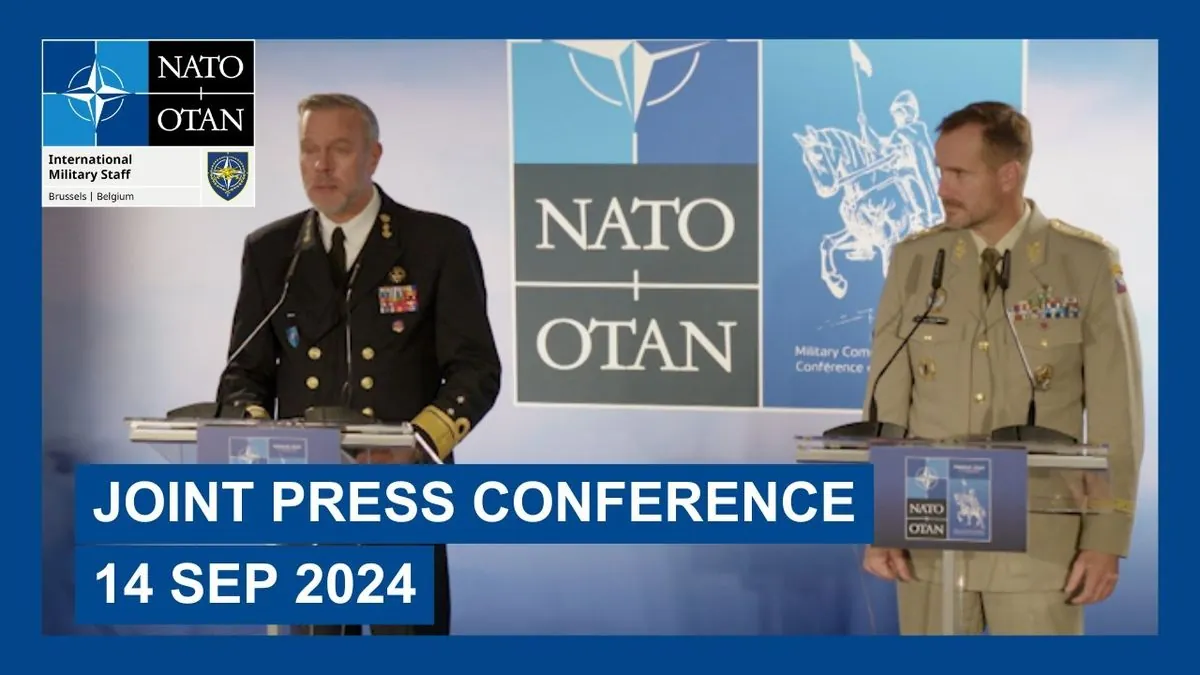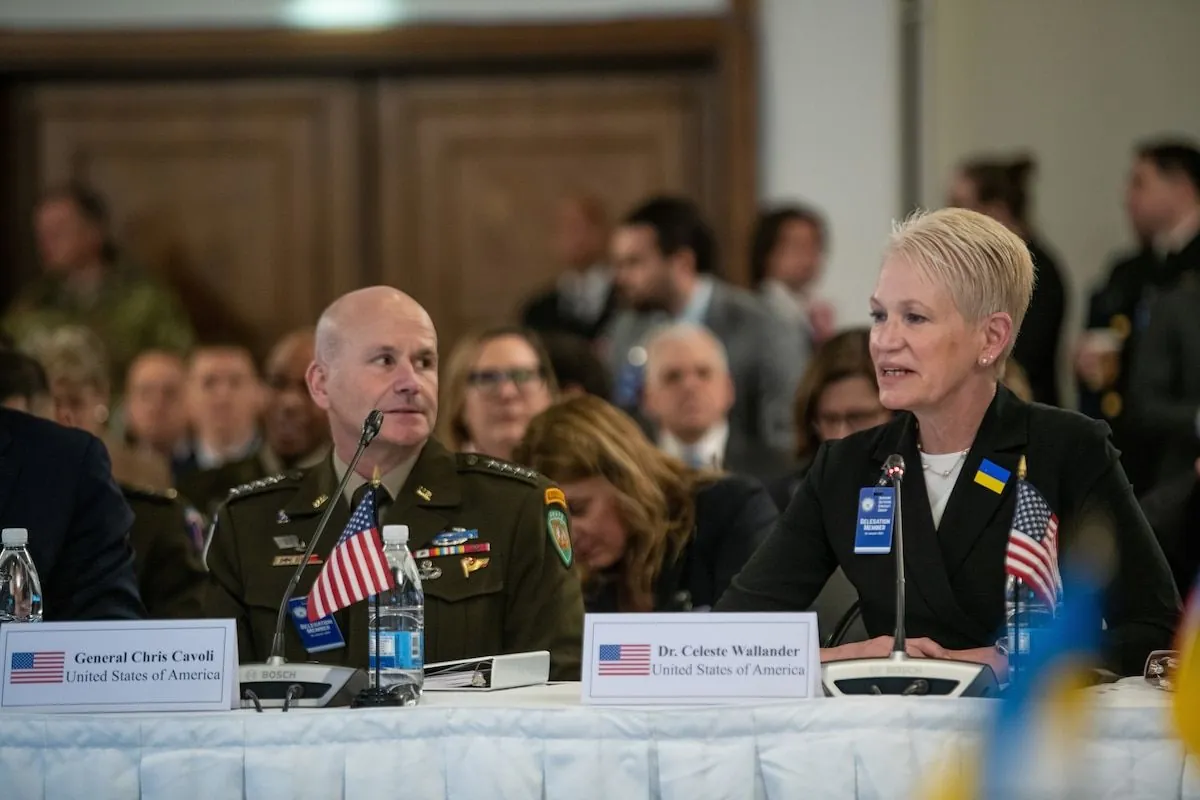NATO Military Chief Backs Ukraine's Right to Strike Inside Russia
NATO's military committee head supports Ukraine's right to strike within Russia, highlighting divisions among allies over weapons restrictions. US policy on long-range weapons remains unchanged amid ongoing debate.

The head of NATO's military committee, Adm. Rob Bauer, has expressed support for Ukraine's right to conduct military operations within Russian territory. This stance, shared by several U.S. allies, contrasts with the Biden administration's current policy on restricting the use of American-made weapons for such purposes.
Bauer stated, "Every nation that is attacked has the right to defend itself. And that right doesn't stop at the border of your own nation." This declaration came during the annual meeting of NATO's military committee, which concluded approximately one year ago.
The debate over weapons restrictions for Ukraine has revealed differing opinions among NATO allies. While some nations, like the Czech Republic, place no limitations on how Ukraine uses provided weapons, others, including the United States, maintain stricter policies.
Lt. Gen. Karel Řehka, chief of the General Staff of the Czech Armed Forces, emphasized their position: "We believe that the Ukrainians should decide themselves how to use it." This approach reflects the Czech Republic's strong support for Ukraine, which is partly rooted in historical context. The Czech Republic joined NATO in 1999, just a decade after the fall of communism in Eastern Europe.

The ongoing conflict between Russia and Ukraine, which began with the annexation of Crimea in 2014, has led to increased use of modern warfare technologies. Uncrewed aerial vehicles (UAVs), which have been prominent in military operations since the early 2000s, have played a significant role in this conflict.
U.S. Gen. CQ Brown, chairman of the Joint Chiefs of Staff, highlighted Ukraine's effectiveness in developing its own combat capabilities: "They've proven themselves fairly effective in building out uncrewed aerial vehicles, in building out drones." This development showcases Ukraine's adaptability in the face of ongoing aggression.
The debate over long-range weapons, such as the ATACMS (Army Tactical Missile System) with a range of up to 300 km, and the UK's Storm Shadow missiles with a range of approximately 560 km, continues to be a point of contention. The U.S. has provided over $75 billion in aid to Ukraine since the 2022 invasion but maintains restrictions on the use of certain long-range weapons.
U.S. Defense Secretary Lloyd Austin emphasized that there is no "silver bullet" in terms of weapon systems, highlighting the complexity of military strategy in this conflict. The concept of "deep strike," which has roots in early 20th-century military thinking, remains a crucial element in modern warfare discussions.
As the conflict persists, NATO's role in supporting Ukraine while maintaining a delicate balance with Russia remains critical. The alliance, founded in 1949 with the Netherlands as one of its original members, continues to adapt its strategies in response to evolving geopolitical challenges.
The ongoing debate within NATO reflects the organization's complex decision-making process, which involves both military and political considerations. As winter approaches, the alliance faces the challenge of supporting Ukraine while navigating the potential for escalation in the conflict.
"Be bold and open in articulating your assessments and recommendations. The rounder and the softer they are, the less they will be understood by the political level."
This statement underscores the importance of clear communication between military leaders and political decision-makers in addressing the complex challenges posed by the Russia-Ukraine conflict.


































